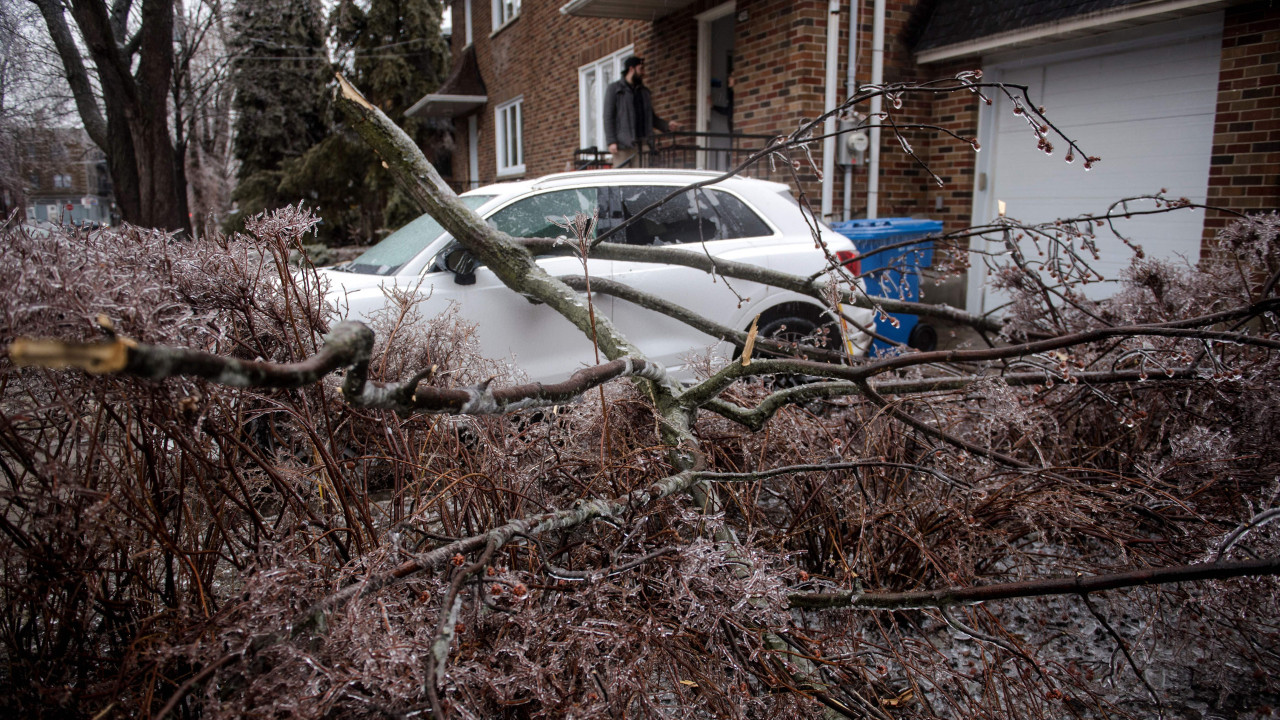
EThis year was the hottest ever, according to the European Earth observation service Copernicus. Although December still needs to be counted, the truth is that since January, each month has recorded the highest average temperature since records have been recorded.
With greenhouse gas (GHG) emissions steadily growing, autumn 2023 in the Northern Hemisphere is the hottest on record.
The World Meteorological Organization recently recalled that the last nine years were the hottest since the beginning of modern measurements and warned of the cyclical climate phenomenon “El Niño” which causes the warming of the Pacific Ocean and could further increase temperatures next year.
In a year of records, 2023 will see a resurgence of extreme weather phenomena. Portugal was not badly affected, but Greece and countries in central and northern Europe suffered from heat and floods, as did the Americas, Africa, Asia and Oceania.
Large fires are in many cases due to global warming. The year that is ending will be marked by fires in Canada, where 18 million hectares burned in 6,500 forest fires, some of them due to a severe drought.
Canada’s five months of fires emitted 473 megatonnes of carbon dioxide (CO2), three times the previous record, and displaced 200,000 people. The smoke was felt in Portugal.
In Hawaii, the forest fires were also historic, the deadliest in 100 years, with at least 110 deaths in August, due to climate change, according to authorities.
Heat waves swept across Asia, hitting countries such as India, China, Laos and Thailand, in the first quarter of the year a cold wave killed 166 people in Afghanistan and China also recorded record low temperatures in January.
In February, Cyclone Freddy killed 1,434 people, some of them in Mozambique, where the storm passed twice and affected 263,000 people. It lasted more than a month and was one of the longest-lasting tropical cyclones on record.
The year’s meteorological disasters can also include the more than 400 victims of Cyclone Mocha, in May, the 112 heat-related deaths in North America, the 100 deaths in floods in India and many more in the Philippines, or the floods in São Paulo. Paulo, Brazil, Pakistan and Haiti, each case with at least fifty victims.
Floods in DRCongo caused 400 deaths and in Libya around 11,000 people died when two dams collapsed in September after heavy rains caused by Storm Daniel.
Some of the extreme weather events may not be directly related to global warming, but according to the UN, the increase in the Planet’s temperature is a direct cause of the torrential rains and floods in the Horn of Africa, which affected Somalia less than a month ago, but also Kenya, Ethiopia and Tanzania caused the deaths of 300 people and displaced more than two million, after the region suffered the worst drought in the last 40 years.
After battling drought, Somalia has since October seen two million people affected by torrential rains, flash floods that caused a million people to flee and the flooding of 1.5 million agricultural hectares.
The ‘chance’ of global warming also marked Greece, affected by historic fires in the summer and shortly afterwards by catastrophic floods.
Climate change has exacerbated climate phenomena. They caused an unprecedented drought in the Amazon, flash floods and deadly storms in the United States, record temperatures in Spain, Brazil, India, Laos, China, the United States and Australia.
Autumn, after suffocating heat in several countries around the world, was extremely rainy in Vietnam, Italy, Slovenia, Hong Kong, China and the United States.
According to the UN, extreme climate phenomena have seen an “astonishing increase” in the last 30 years. In Europe, says the European Environment Agency, they have led to the deaths of 195,000 people since 1980.
The Food and Agriculture Organization of the United Nations (FAO) says that climate change causes the annual loss of 123 billion euros of agricultural production and livestock, equivalent to 5% of world production.
Environmental disasters have gone from an average of 100 events per year in the 1970s to 400 in the last two decades.
Read Also: More than 11,700 people evacuated from their homes by storm in the Philippines
All News. By the Minute.
Seventh consecutive year Consumer Choice for Online Press.
Download our free App.
Source: https://www.noticiasaominuto.com/mundo/2463470/recordes-sucessivos-de-calor-e-de-chuva-no-ano-mais-quente-de-sempre


